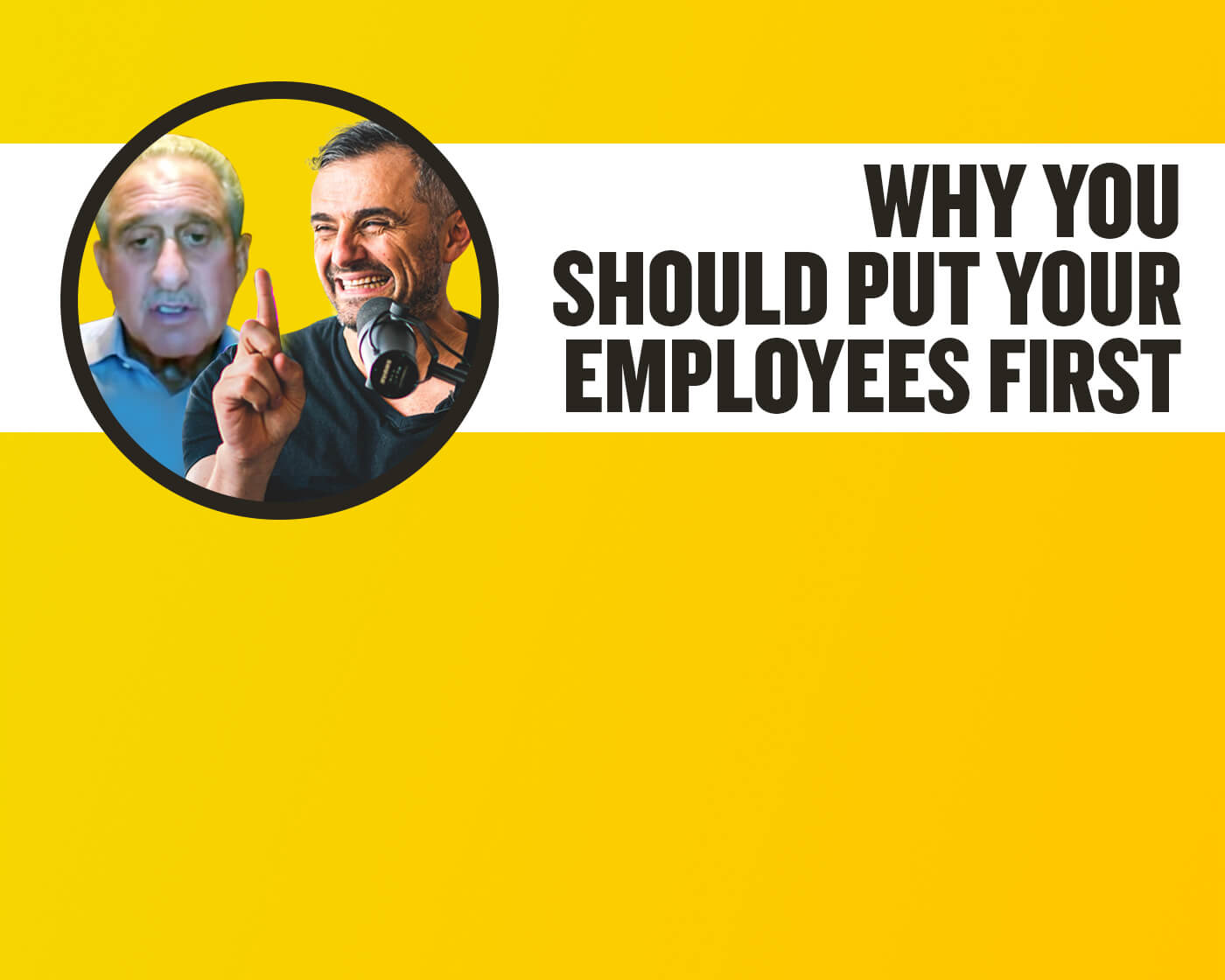It’s clear that employee first businesses will win in the next decade. Tides are changing and people are evolving to value what really matters. There is no way for CEOs and business leaders to win if they don’t understand this shift. More than a new thing or random part of the “new normal”, employee first businesses have won big for many years now. It’s part of the reason I surround myself with successful people who have empathy for others and understand this cold.
With that in mind, I’d like to introduce the prestigious gentleman, Arthur Blank. He’s an author and I know how much my audience has enjoyed getting to know authors. We’re talking about how it’s clear that employee first businesses will win in the next decade.
Entrepreneurial Beginnings
Gary: You and I have a lot of things in common, we both grew up in Queens and we both do business differently. How did you start your business?
Arthur: You know I co-founded the Home Depot in 1979 and left in 2001. We were the second largest retailer in the world at that time. Today the company has a capital value of over 300 million dollars. Later, I transitioned into a variety of other things, including ownership of the Atlanta Falcons and Atlanta United, a major league soccer team. We operate the PGA tour superstores, several guest ranches in Montana, and we have a very active and philanthropic family foundation.
The beauty and essence of my book is that all of the values that we cultivated and developed at Home Depot for 23 years are now being shepherded along beautifully by Craig Menear (current CEO of Home Depot) and their whole team. The same values we put in place within all of these different industries, in different settings with different geographies, are all connected to the communities that we live in. You can have both profitability and emphasis on the people side of the equation. In fact, if you’re going to achieve both at high levels you need to put emphasis on both of them. One feeds strongly into the other.
Milton Friedman, a great economist, wrote a book 50 years ago. He said, “ The purpose of a corporation is to make money for shareholders.” Period, that’s the end of the discussion. Today, I think you know the view is different, it’s changing.Good values, based on human relationships between who you’re serving, who’s doing the serving, and the communities you’re living in, and profitability are all equally important. One enhances the other. It’s not that you have to have one or the other or that one takes away from the other. The beauty of a weighted barbell is that it’s balanced on both ends, it’s equally weighted.
We think these values are transportable to virtually every business–for-profit, non-profit, and whatever the case may be.
Honey Over Vinegar
Gary: I call VaynerX my universe, and my honey empire, because I also think that you can win with honey over vinegar. Deep negativity and bad human traits make me uncomfortable. A lot of people are confused when I say: you don’t have to kill or be mean to be a successful business person.
Arthur: Not only that, but I think it’s counterintuitive to be that way if you want to be successful. I measure success in two ways. One way is with financial results, that most would conventionally asumme, and another way is with purpose. You don’t have to be like Deepak Chopra, but there is more to life than making money. I think young people, in particular, are striving for more purpose than past generations. Although, I was deeply inspired by my mother and the way she ran our family business after my father passed when I was 15 years old.
She ran it beautifully and eventually, she sold it. I think the notion of pushing through challenges, looking for opportunities to enhance or make the world a better place (if you will) should be foundational. My mother was a woman of principle and, therefore, that became very important to me at an early age. She often uses this expression “do the right things, for the right reasons, and you will live with the consequences.” I think that’s stayed with me for many years and drives a lot of the cultural aspects of what we talk about in my book.
Kindness and Competitiveness Can Co-exist
Gary: I resonate with that. People ask why I have this “honey empire” thing, and I always tell them, my mom. She is one of the nicest people and it’s just in her DNA to be nice and kind. People also get confused because I am admittedly competitive and they don’t realize kindness and competitiveness can co-exist.
It’s actually very easy for kindness and competitiveness to co-exist, but sometimes competitiveness (especially in the heat of the moment) manifests into something that seems a little bit more aggressive and not naturally kind. Do you feel this can confuse some outside observers?
Arthur: Yeah, I think it can. However, there are people that I have great respect for, who have always been as firm as they need to be and as strong as they need to be, with an underlying degree of kindness. Some of the kindest, most considerate, most thoughtful people are also extremely competitive. You can have both. At the end
of the day, you want the people that work for you to feel like it’s not just about making money. It’s about committing to an organization that’s making a difference in the world. It’s about making the difference in other people’s lives.
Karma Has A Practical Impact
Aruthur: Gary, your following comes because those people are listening to you because they believe what you’re sharing with them is making a difference in their lives.
Gary: To your point, I’m reverse engineering bringing value for them, not myself. I understand the karma that it has a practical impact and gives me opportunities for myself. It’s not super complicated. Good builds on good.
Arthur: Exactly right. When you develop that kind of relationship with who you’re serving, it makes an impact.
That’s all for now, VaynerNation! Click this link for the entire interview. If you liked this article, be sure to share it on Twitter.












Với công nghệ bảo mật đa tầng, Rayesports.com Rayesports cam kết bảo vệ thông tin người chơi, giao dịch an toàn, nhanh gọn và mang đến trải nghiệm cá cược công bằng. – 2025 April 04, 11:12
Rbviet.net Rbviet – Điểm đến lý tưởng cho cá cược thể thao điện tử, đảm bảo bảo mật cao, giao dịch nhanh và trải nghiệm đặt cược mượt mà trên mọi tựa game đình đám. – 2025 April 11, 10:10